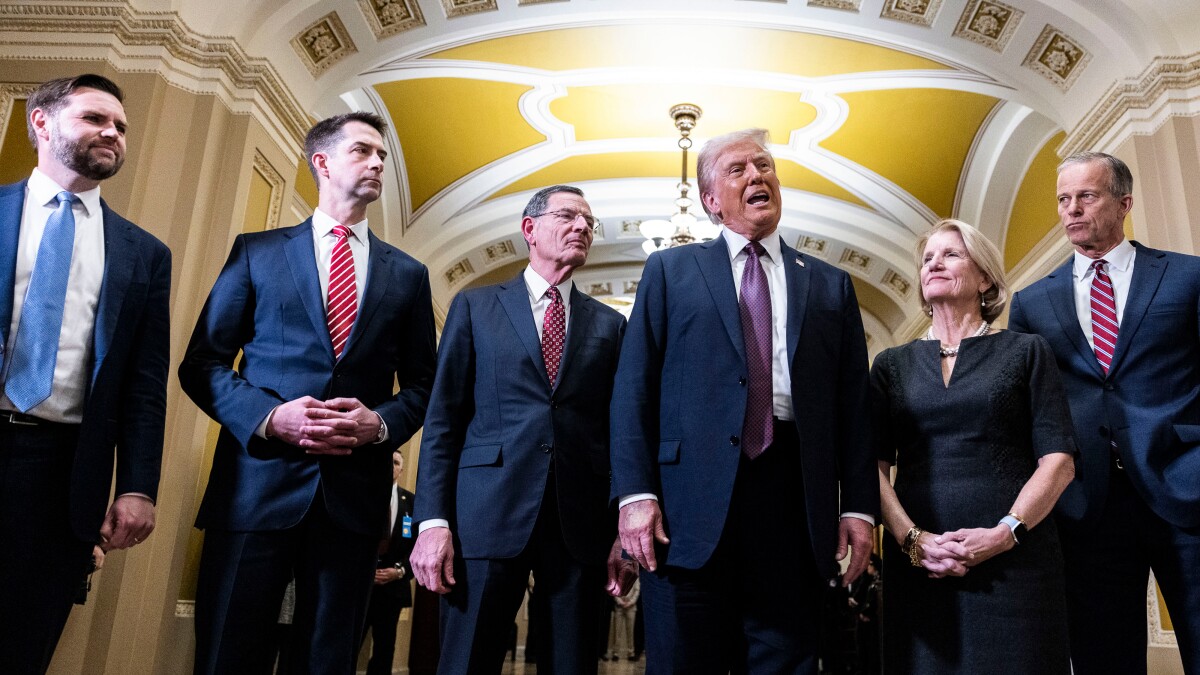Vice President-elect JD Vance, from left, Sen. Tom Cotton, R-Ark., Sen. John Barrasso, R-Wyo., President-elect Donald Trump, Sen. Shelley Moore Capito, R-W.V., and Senate Majority Leader John Thune, R-S.D.Bloomberg News WASHINGTON — The 119th Congress is taking shape, and financial policy (in one form, at least) is back as a top legislative priority. Lawmakers have been tinkering with various iterations of crypto legislation for years, the most recent example being FIT21, a bill offered by newly appointed House Financial Services Committee Chairman Rep. French Hill, R-Ark.But with the 119th Congress, that momentum is likely to accelerate. This Congress, which was gaveled in on Jan. 3, has an influx of crypto-friendly lawmakers, thanks in part to a large amount of spending in the 2024 elections from crypto advocacy groups like Andreessen Horowitz’s Fairshake PAC. President-elect Donald Trump has also pledged to make crypto a top priority, promising, among other things, to establish a strategic bitcoin reserve. And as with FIT21 — which included provisions for crypto custody banking — crypto legislation is likely to have a big impact not just on fintech and digital assets companies, but for traditional financial institutions as well. “With a pro-crypto president and bipartisan, pro-crypto Congress, we will likely see smart crypto policy make its way through Washington under the 119th Congress,” said Blockchain Association CEO Kristin Smith. “As the United States continues to embrace crypto innovation, the door will also be opened for traditional financial institutions to engage and invest in crypto.” Crypto’s newly expanded influence extends beyond the industry’s traditional Republican allies. More than half of senators received the most positive “A” rating from Stand With Crypto, a digital assets advocacy group. Those ranks include newly elected Democrats like Sens. Adam Schiff of California, Andy Kim of New Jersey and Ruben Gallego of Arizona. Both Kim and Gallego will sit on the Senate Banking Committee, which will take on the first look at banking-related crypto legislation — and, perhaps more importantly, approve bank regulators who will likely be more open to the banking industry interacting with fintechs and digital asset companies. “Banks will want to see if their regulators give them a little more freedom to engage in crypto-related activities,” said Ian Katz, managing director of Capital Alpha Partners. “Some banks may feel more emboldened because of the change in government and regulators, but I suspect that a lot of banks will remain pretty cautious about crypto.” Leadership in both the House and the Senate is also decidedly more innovation-friendly. Sen. John Thune, R-S.D., is the new Senate Majority leader, taking over from Sen. Mitch McConnell, R-Ky., who has struck a tepid stance on the topic in the past. Thune has been active in the crypto policy space, co-leading the Digital Commodities Consumer Protection Act

